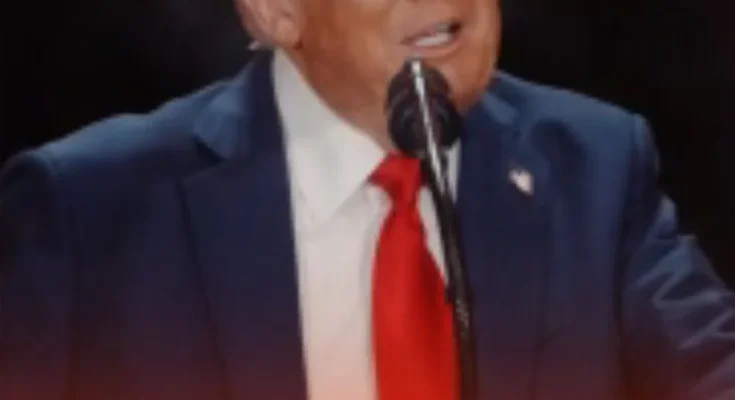Thousands of people gathered at State Farm Stadium in Glendale, Arizona, to honor the life of Charlie Kirk, a well-known conservative activist who died earlier this month. The event, which combined moments of deep reflection and heartfelt tributes, was designed to celebrate Kirk’s legacy as a young leader and family man.
Among the attendees was former U.S. President Donald Trump, who had maintained a close working relationship with Kirk over the years. Kirk was widely seen as a key figure in energizing young voters and had played an influential role in Trump’s political movement. He was also one of the first to confirm Kirk’s tragic death following a shooting incident on September 10 at Utah Valley University.
Speakers throughout the service shared stories about Kirk’s commitment to his faith, his family, and his vision of civic engagement. Friends and colleagues highlighted his passion for mentoring young activists and his reputation for tireless work behind the scenes.
Erika Kirk, Charlie’s wife, gave one of the most moving speeches of the evening, describing her husband as “the kind of man who put his values into action” and someone who “lived every day to serve his community.” Her words brought many in the audience to tears and set a somber, respectful tone for the remainder of the memorial.
Following Erika’s address, Donald Trump took to the stage as the final speaker. He began his remarks by praising Kirk as “a devoted husband, father, son, Christian and patriot” and described his death as a loss “not just for his family but for the entire country.”
However, as his speech continued, Trump moved from commemorating Kirk’s life to discussing upcoming health policy announcements — specifically mentioning autism and medical research.
This wasn’t the first time Trump had referenced such an initiative. At a dinner hosted by the American Cornerstone Institute just days earlier, he had hinted at a forthcoming announcement on autism research, calling it “one of the most important things we will do.”
Major outlets, including The Washington Post, have reported that officials may attempt to connect autism rates to environmental or prenatal factors. Health authorities, however, emphasize that current evidence does not support a link between autism and common medications like acetaminophen (Tylenol), which remains widely considered safe for pregnant women when used as directed.
Public health experts also note that multiple large-scale studies have found no connection between autism, vaccines, or widely used pharmaceuticals. These findings have been reiterated by organizations such as the Centers for Disease Control and Prevention (CDC) and the World Health Organization (WHO).
Trump’s remarks quickly drew a strong response on social media. Many users said they appreciated his focus on health issues affecting families, but others argued that the memorial service was not the appropriate setting for such announcements.
One commenter on X (formerly Twitter) wrote: “Come on, Donald Trump… this is the memorial service. Stay on the topic.” Another said: “Donald Trump is using his Charlie Kirk tribute to talk about how he might have the answer to autism.” A third added: “Donald Trump has just said he’s going to fix autism.”
Despite the online criticism, some supporters pointed to Trump’s longstanding interest in children’s health initiatives and said they hoped the promised announcement would lead to meaningful research and support for families.
The memorial ultimately returned to its central purpose: remembering Charlie Kirk’s life and contributions. Friends, family members, and colleagues closed the evening by sharing personal stories of his kindness, generosity, and drive to make a difference. Attendees also reflected on how Kirk’s work had inspired a new generation of young conservatives to engage in civic life.
While Trump’s speech became a focal point of media attention, the event itself underscored the impact Kirk had made in a relatively short time. For many in attendance, the day was less about controversy and more about honoring a friend, husband, and father whose influence extended far beyond political circles.




